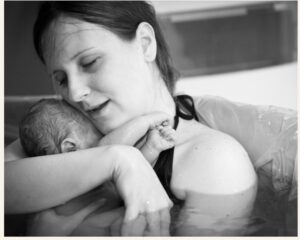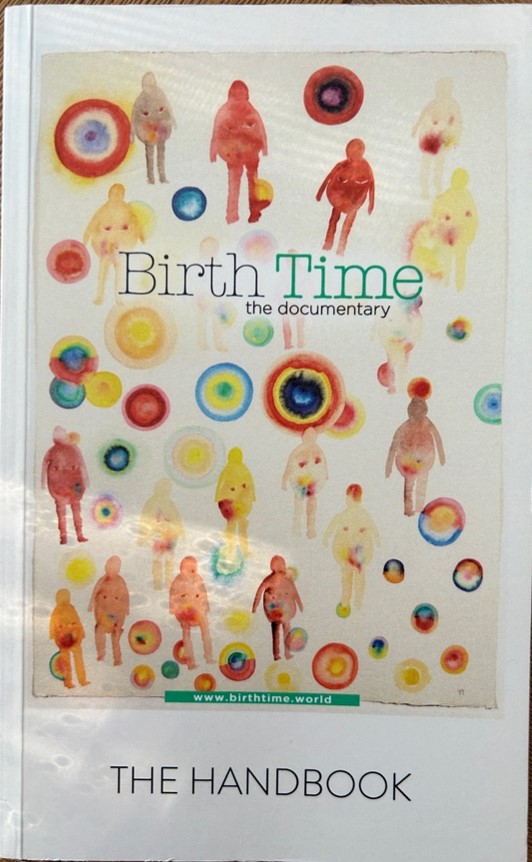Book Review – Birth Time: The Handbook
Authors: Jerusha Sutton, Zoe Naylor, Jo Hunter & Selina Scoble
This book review was submitted by doula Charlotte Lucas.
‘Birth changes you; this transformational experience is as much about a mother being born as it is about a baby.’
The Birth Time Handbook is an invaluable resource and companion that is such an inspiring read. You know one of those books that you finish and just want to throw it down, march out the door and change the world? This is one of them. This book is not just for birth workers or pregnant women, it is a global necessity for all people who value equity, respect, cultural recognition and protection of the inherent human rights of all women entering our broken maternity system.
So, What’s It All About?
The Birth Time Handbook is full of incredible evidence-based information, research and stories based on the film, Birth Time: The Documentary. A team of 4 women embark on a mission to discover why there are increasing amounts of mothers emerging from their birth physically and emotionally traumatised. What they discover is nothing short of confronting, but in order to make a change, sometimes you need to be hit hard in the ‘feels.’ Motivation stems from passion and passion comes from the heart. The research and interviews they conducted, exposed a broken system, postnatal depression epidemic, high intervention rates in labour and birth and women feeling like they were not given control over their own bodies or choices. Suicide is the leading cause of maternal death in the developed world and birth trauma is rampant. Birth Time aims to educate women and people on the different maternity systems available, share information on the evolving midwifery models of care and develop an understanding and bring about opportunity and hope to those who have been let down by the institution. This book shines a light on our current maternity system; the good, the bad and the ugly. It is an education resource aimed at bringing people together to help women understand they have choices when it comes to birth and how they can work towards reclaiming their power and rite of passage into motherhood.
Intervention
In the last 10 years, birth intervention rates have risen dramatically as we all know. What our team of researchers found was that a recurring theme of so many of their interviews was the ‘cascade of intervention’ phenomenon. When you choose even a small intervention and, as a direct result, another intervention becomes necessary, you’ve fallen into the cascade of intervention. A great example of this is let’s say that you have chosen an IV pain medication during your labour, the full description of the repercussions of this is not fully discussed with you. Due to the potential side effects of the medication, the hospital staff are worried about you falling over so you are now limited to only labouring in bed. What happens when you are less mobile? You can no longer make use of gravity and so your labour is sometimes slowed down. Next you are offered Syntocin or Pitocin to speed up your labour again but due to the intensity of the contractions after the artificial oxytocin your body is no longer coping with the pain again. You opt for an epidural at this point and are feeling much less pain but you’re unable to feel the urge to push. You are unable to tune in with your body and your baby and so your care provider suggests an instrumental birth and an episiotomy to help get the baby out. Baby unfortunately isn’t tolerating the intense artificial oxytocin contractions and so now you’ll have to have a caesarean section- the cascade of intervention ladies and gentlemen. What has happened is that the system has disabled a women’s belief in herself and her kind of internal power. As Hannah Dahlen says, we have made them believe that they can’t give birth without all of these things done to them and so this becomes the standard and the culture.
We need to get much better at helping women understand physiological birth and working with pain.

Human Rights
As a global community, we are losing connection and trust in one of the most transformative, powerful, primal and pivotal rites of passage we will ever undertake in our lives. We live in a time where unfortunately it has become almost normal to just disregard the importance of a woman’s experience of birth and assume the position of ‘healthy baby, healthy mumma = good outcome.’ As Bashi Hazard so passionately states, childbirth is absolutely a human rights issue. When you are the one making decisions about a woman’s body, their personal autonomy, their right to choose, the circumstances in which they live, breathe and function, you have a duty to abide by those very fundamental human rights. A common theme in many of the interviews undertaken is that in pregnancy and childbirth women are reporting that as soon as they become pregnancy, there is this presumption that those rights no longer apply to them. The topic of consent comes up here, and even more so, informed consent. Dr Rachel Reed discusses this passionately in Birth Time where she explains that in order for a care provider to do something to a woman, they have to get consent.
Consent has to be without coercion and without misrepresentation of what they want to do or why they want to do it. In other words, a care provider can’t leave out half the facts because the bias benefits them. Care providers are in a very powerful position to be able to coerce women into doing what they want them to do by using statistics in a deceiving way. A great example of this is you have opted for a VBAC and you are now at 40 weeks gestation.
Birthing on Country
What I absolutely love about Birth Time is how beautifully and appropriately it discusses birthing on country. Birthing on Country relates to the best start in life for Aboriginal and Torres Strait Islander babies and their families through an integrated, holistic and culturally appropriate model of care. Over time, Indigenous women across Australia have given birth on their Country, supported by family and cultural caring practices, until the disruption from European colonisation. Today, First Nations women, babies and families experience profound health inequities when comparing health outcomes to their Australian counterparts. A disproportionate number of First Nations women experience adverse outcomes in pregnancy and birth. For the past ten years, there has been little or no improvement in perinatal indicators. Maternal death for First Nations mothers is 3.7 times higher than for other Australian women, and perinatal deaths, largely driven by complications of pregnancy, are twice as high. During the research for Birth Time, the team spent time with Mel and Cherisse who are Indigenous women, midwives and senior members of the birthing on country team in Nowra and Alice Springs. Cherisse talks about a devastating experience she had in a hospital setting where she felt disempowered and surrounded by midwives who were clinically amazing at what they did, but their connection to culture just was not there. Mel explains that women just want their dignity, they want to be treated as human beings and they want their culture and traditions to be respected. The Birthing on Country project is about bringing Indigenous women together and bringing birth back into a cultural setting. The aim is that birth is brought back to a family setting and women having the choice to birth in the country that they choose, whether that be their traditional country or somewhere very far away from that place. It is all about the woman’s cultural and spiritual connection to country. There is much traction happening in this space and Mel and Cherisse are at the forefront of bringing this all together for our First Nations families. I don’t want to give too much away or that will just be a big spoiler for you!

The Question
So, what’s the big question? What is at the core of this book and what is the message you should be taking away to reflect upon, shout from the rooftop and bring about positive change one step at a time?
‘What would it take for all women to emerge from their births physically and emotionally safe?’
One suggestion from Jo Hunter talks about the way the system is funded, and what changes could surface if the funding was given to the woman so that she could choose her birth and care provider team. This will enable the woman to hold the power- exactly where it should be. Dr Sarah Buckley expresses her perspective that we actually need to do less. We need to stand back and allow the beautiful hormonal physiology of birth to unfold as they naturally would in order for women to come out of birth physically well and emotionally safe. Valyrie Painter reminds us that it isn’t all about the outcome and that if women have felt that they were supported all the way through their childbirth journey, then that will create a flow on effect like nothing we have ever seen. We need love, and we need women that love themselves and know their bodies. We need education to start from the very beginning and we need women to grow up feeling that it’s alright to say the word vagina. It starts with us. What do you think?

Birth Time is a catalyst that is educating, motivating action and instigating change. Women who read this book will be left with the burning desire to improve women’s experiences of birth and promote care, connection, respect and cultural safety. It is as important to understand the history as it is to know the current and this book helps feature the right now. I implore you to get involved, be a part of the conversation and light your fire as you join this journey of change with us.
My name is Charlotte Lucas, and I am a qualified doula who has trained at the Doula Training Academy. If you would like more information about my doula services, please contact me:
Phone:
0411 967 744
Email:
[email protected]
Facebook:
https://www.facebook.com/profile.php?id=100090042966776
Instagram:
https://www.instagram.com/birthyourway_doulas/
Website:
http://www.birthyourwaydoulas.com.au

